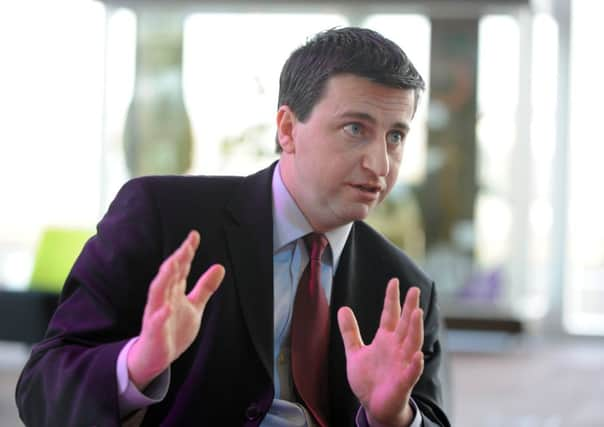Andrew Wilson: Actions speak louder than words


Whilst we adults are stuck in our own behavioural ruts and enjoy fully developed and entrenched bad habits, that doesn’t mean we don’t want better or best for our offspring.
So when our entreaties are met with a metaphorical mirror showing our own example is not all it should be, we are fully entitled to reply sternly, “don’t do as I do, do as I say”. It would be part of our constitutional rights if we had a constitution.
Advertisement
Hide AdAdvertisement
Hide AdI was reflecting on this when thinking about what Labour and the Conservatives are expected to propose in terms of more powers for Scotland. As with everything else in an increasingly frenzied debate, the innocent voter has to try and distinguish between campaign noise and the reality of what will happen when our democratic will is expressed. And between the colourful rhetoric of promises made and the clear reality of commitments eventually kept.
So last week as I settled down to read another excellent and challenging speech from Douglas Alexander MP, I called to mind the words of Andrew Carnegie: “As I grow older, I pay less attention to what men say, I just watch what they do”.
Politicians’ daily currency is words, but the legacy of their impact rests inevitably on their actions. We are in the heat of a very big campaign. At times like these the competing sides rarely pause to listen and reflect on the words of their opponents. Do they ever? Condemn in haste, read in leisure, is the rule. The longer my “retirement” from the political front line the less inclined I am to its habits.
Politicians always try and frame their opponent’s position as worse than reality and their own as rosy as could be. I find it particularly frustrating that this political phenomenon applies many times cubed and squared when it comes to Scotland’s referendum debate. And it always has.
So we were told in the referendums of 1979 and 1997 that the economic world would all but come to an end if we voted Yes. In the first we were even promised “more power” by the Tories if we voted No. All sound familiar? Neither turned out to be true. Funny that.
But in 1999 we got a Scottish Parliament delivered by the Labour Government that designed it. They were backed by the campaign effort of the SNP and many others in a referendum that only Tony Blair wanted. On this, we should all be big enough to note, Blair was right and did all a favour.
The groundswell was such that the referendum legitimised and made permanent the idea, unifying the country behind progress. It also gave political opponents a stake in the outcome. A lesson to be borne in mind.
Read through the rhetorical excellence of Douglas’s speech and what matters most is that he gave it. It remains very light on detailed commitment – 60 words in 6,600 on the sort of powers he seeks – but we can be sure that the Labour party is now committed to more power. Douglas is too clever, senior and careful to be flying a kite.
Advertisement
Hide AdAdvertisement
Hide AdThis should all be welcomed and, in accepting that welcome, Labour would be graceful and classy if they recognised that they would not be here were it not for the seismic SNP victory in 2011 and all that followed.
What remains to be seen is the depth of commitment to truly reverse the historic centralism of British government. Douglas calls for his party’s devolution commission to “range widely and act boldly”. I’d add the word “deeply’ as we well.
In recent years, Labour’s policy on Scotland has seemed driven as a response to the SNP rather than a heartfelt expression of the reform they truly seek. They would like to be seen as the “party of Home Rule”. Fair enough. But the Home Rule we currently have is pretty much the same power as Michael Forsyth had as Secretary of State for Scotland but with a democratic Parliament to hold it to account (good) and an unuseable tax power tagged on for show (less good). Now is the hour for all this to change.
What matters most is that Scotland’s democracy is truly empowered to face the economic, social and public service opportunities of the modern world. Nickle and diming the power will not help, in fact it could conceivably hinder.
You might believe the answer lies in the normal independent powers of a small successful country. Powers that come with enduring shared ties and institutions with the rest of the UK as the Scottish Government proposes. Or you may feel it worth hanging on for more from the ongoing deliberations of the Labour, Lib Dem and (could it be true?) Conservative parties.
What is not in doubt is that the larger the vote for Yes in September, the more substantial the democratic powers the Scottish people control will be.
Either way, I encourage you to learn the lessons of our modern history and listen to the advice of Andrew Carnegie. Watch what politicians do rather than what they say.
Twitter: @AndrewWilsonAJW